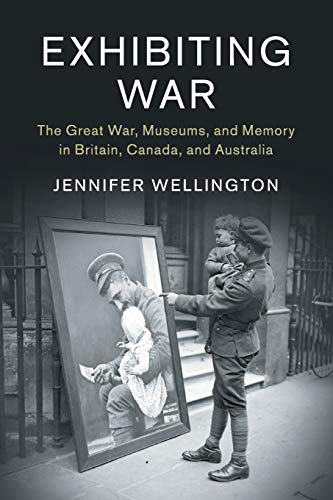Exhibiting War: The Great War, Museums, and Memory in Britain, Canada, and Australia (Studies in the Social and Cultural History of Modern Warfare, Series Number 53)
$692.79
What does it mean to display war? Examining a range of different exhibitions in Britain, Canada and Australia, Jennifer Wellington reveals complex imperial dynamics in the ways these countries developed diverging understandings of the First World War, despite their cultural, political and institutional similarities. While in Britain a popular narrative developed of the conflict as a tragic rupture with the past, Australia and Canada came to see it as engendering national birth through violence. Narratives of the war’s meaning were deliberately constructed by individuals and groups pursuing specific agendas: to win the war and immortalise it at the same time. Drawing on a range of documentary and visual material, this book analyses how narratives of mass violence changed over time. Emphasising the contingent development of national and imperial war museums, it illuminates the way they acted as spaces in which official, academic and popular representations of this violent past intersect.
| Peso | 15.87 kg |
|---|---|
| ISBN | |
| ISBN13 | |
| Author | |
| Publisher | |
| Binding | |
| Lenguage | |
| Publish Year | |
| Edition | |
| Pages |
Productos relacionados
-
Beyond: The Astonishing Story of the First Human to Leave Our Planet and Journey into Space
$629.79 Añadir al carritoValorado con 0 de 5 -
Waterloo: The History of Four Days, Three Armies, and Three Battles
$462.00 Añadir al carritoValorado con 0 de 5 -
Road to Disaster: A New History of America’s Descent into Vietnam
$398.79 Añadir al carritoValorado con 0 de 5







